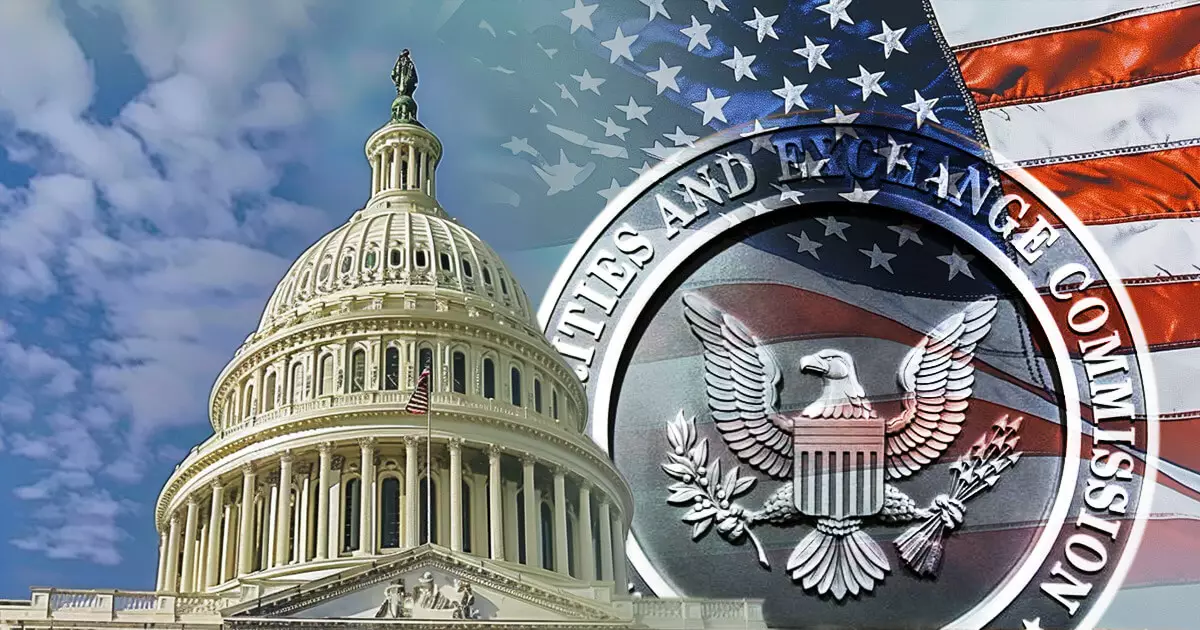The ongoing evolution of cryptocurrencies has sparked a wide range of discussions regarding their regulation, with recent congressional hearings shining a spotlight on the Securities and Exchange Commission (SEC) and its Chairman, Gary Gensler. As the SEC navigates its responsibilities amid the exponential growth of digital assets, significant questions arise about the agency’s strategies, challenges, and the implications for investors and the broader financial ecosystem.
Chairman Gensler faced substantial criticism during a recent hearing where lawmakers questioned the SEC’s approach to cryptocurrency regulation. Notably absent from Gensler’s prepared remarks was any mention of digital assets, raising alarms among legislators and industry experts about the effectiveness and clarity of the SEC’s regulatory frameworks. Lawmakers highlighted the issue of “regulation by enforcement,” suggesting that a lack of explicit guidelines creates confusion in an already complex and rapidly changing environment.
House Financial Services Committee Chairman Patrick McHenry emphasized the need for clear regulations, referencing the FIT 21 Act, which aims to establish robust guidelines and consumer protections within the digital asset space. McHenry pointed out that more than two-thirds of the House, including a notable segment of bipartisan support, counseled against Gensler’s existing strategy towards digital assets. This strong stance signals a political desire for a more defined and structured regulatory landscape.
A significant area of contention during the hearing was the FIT 21 Act’s definition of decentralization. Some lawmakers raised concerns that proposed thresholds for ownership and the use of anonymous self-hosted wallets could impede enforcement measures. The implications of such definitions could be profound, potentially complicating regulatory oversight at a time when clarity is crucial.
Meanwhile, SEC Commissioner Hester Peirce voiced her critique regarding the agency’s heavy reliance on enforcement actions rather than proactive regulatory guidance. Peirce argued that employing such a strategy hampers the goal of protecting investors, as it leads to uncertainty concerning compliance and the SEC’s jurisdiction. This perspective underscores a critical divide within the agency and among lawmakers on how best to approach the burgeoning field of digital assets.
Commissioner Mark Uyeda asserted the necessity for the SEC to clarify how existing securities laws, particularly the Howey Test, apply to digital assets. This call for legislative clarity reflects a growing consensus among some commissioners that the SEC’s current regulatory framework may be insufficient to effectively govern the complexities of cryptocurrencies. Despite criticisms suggesting an urgent need for updated and explicit guidelines, Gensler maintained that the existing laws are adequate and expressed confidence in their application.
Interestingly, discussions around the potential risks posed by influencer promotions in the crypto space also surfaced during the hearing. Representative Bill Foster questioned whether the SEC possesses sufficient authority to address situations where celebrities endorse investments without disclosing financial compensation. This concern highlights the broader issue of consumer protection in a market characterized by a high degree of speculation and the potential for manipulation.
As the session unfolded, the divide between SEC’s current regulatory methods and the demand for more precise guidelines became increasingly pronounced. Some commissioners believe Congress should provide definitive statutory definitions to illuminate the path forward for cryptocurrencies. Conversely, others advocate for the SEC to leverage its existing authority more effectively, thereby fostering a more supportive environment for innovation while simultaneously ensuring investor protection.
The SEC’s recent testimonies have tackled various issues, including cybersecurity, conflicts of interest, and the importance of transparency in public reporting. However, the conspicuous omission of cryptocurrencies from Gensler’s formal testimony suggests a disconnect between the agency’s agenda and the pressing concerns shared by lawmakers and industry stakeholders.
The quest for clear regulations amidst the digital asset revolution is more critical than ever. As stakeholders push for a comprehensive regulatory framework that fosters innovation while protecting consumer interests, the SEC stands at a crossroads. The ability of the SEC and Congress to address these pressing challenges will determine the future landscape of cryptocurrency regulation in the United States. The ongoing dialogue suggests that collaborative efforts between regulatory bodies and legislative initiatives will be essential in crafting a balanced approach to navigating the complexities of the cryptocurrency environment.

